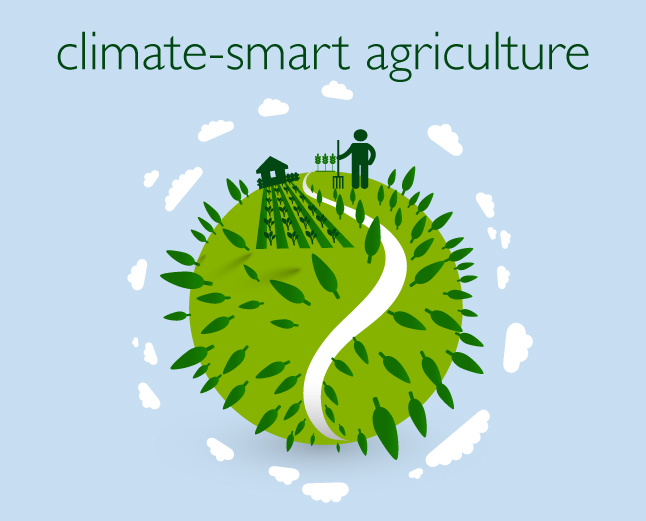
Climate change is one of the biggest challenges that we face as a global community. Rising temperatures, changes in precipitation patterns, and extreme weather events have significant impacts on food security, livelihoods, and the environment. In response to these challenges, farmers, policymakers, and researchers are turning to climate-smart agriculture as a way to promote sustainable and resilient food systems.
What is Climate-Smart Agriculture?
Climate-smart agriculture (CSA) is an approach to farming that aims to increase productivity, build resilience, and reduce greenhouse gas emissions. CSA combines three main objectives:
- Increasing agricultural productivity and incomes: CSA seeks to increase agricultural productivity and incomes while reducing the risk and vulnerability of farming communities.
- Adapting and building resilience to climate change: CSA aims to build resilience to climate change by improving the adaptive capacity of agricultural systems and reducing the exposure and sensitivity of farming communities.
- Reducing and/or removing greenhouse gas emissions: CSA seeks to reduce and/or remove greenhouse gas emissions associated with agricultural practices.
CSA practices can vary widely depending on local conditions, but some common practices include conservation agriculture, agroforestry, improved livestock management, and the use of drought-resistant crops.
Benefits of Climate-Smart Agriculture
There are numerous benefits associated with CSA. Some of the key benefits include:
- Increased productivity and food security: CSA practices can lead to increased productivity and food security, which is particularly important in the face of a changing climate.
- Resilience to climate change: CSA practices can help farmers adapt to the impacts of climate change, such as droughts, floods, and extreme weather events.
- Reduced greenhouse gas emissions: CSA practices can reduce greenhouse gas emissions associated with agriculture, which can help mitigate the impacts of climate change.
- Improved soil health: Many CSA practices focus on improving soil health, which can lead to increased productivity, reduced erosion, and better water management.
- Biodiversity conservation: CSA practices, such as agroforestry, can promote biodiversity conservation by providing habitats for wildlife and preserving ecosystem services.
Examples of Climate-Smart Agriculture
There are numerous examples of CSA practices being implemented around the world. Some examples include:
- Conservation agriculture: Conservation agriculture involves minimizing soil disturbance, maintaining soil cover, and rotating crops. This approach can improve soil health, reduce erosion, and increase water-use efficiency.
- Agroforestry: Agroforestry involves integrating trees into agricultural systems. Trees can provide shade, improve soil health, and provide additional sources of income.
- Drought-resistant crops: Many farmers are turning to drought-resistant crops, such as millet, sorghum, and cassava, to adapt to changing rainfall patterns.
- Improved livestock management: Improved livestock management practices, such as rotational grazing and feed supplementation, can reduce greenhouse gas emissions associated with livestock production.
- Crop diversification: Crop diversification involves growing a variety of crops, which can reduce the risk of crop failure and improve soil health.
Conclusion
Climate-smart agriculture offers a promising approach to promoting sustainable and resilient food systems in the face of a changing climate. By combining practices that increase productivity, build resilience, and reduce greenhouse gas emissions, farmers can adapt to the impacts of climate change while contributing to global efforts to mitigate its effects. However, implementing CSA practices requires support from policymakers, researchers, and the private sector to ensure that farmers have the tools and resources they need to succeed.









